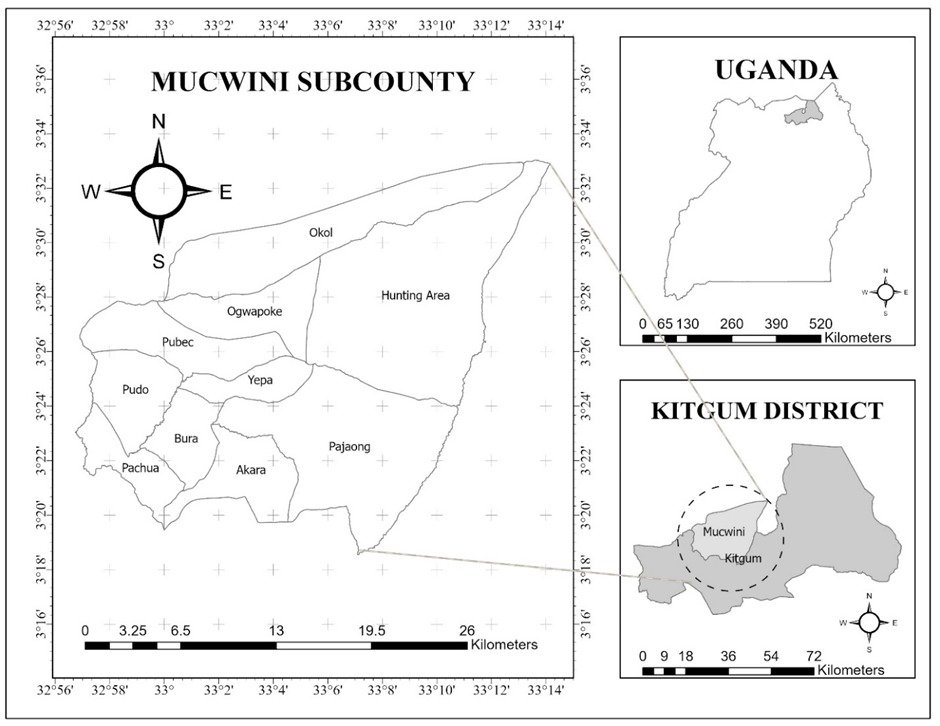Assessing the Smallholder Farmers’ Coping Strategies to the Effects of Climate Change: Evidence in Rural Districts of Northern Uganda
Keywords:
Climate Change, Coping Strategies, Smallholder Farmers.Abstract
Background: The effects of climate change such as droughts, floods and land degradations normally result into crop failures among smallholder farmers. The effect is more adverse on smallholder farmers of Sub Sharan region owing to its low coping strategies and poverty prevalence. Assessing the smallholder farmers coping strategies to the effects of climate is an evitable thought if we want to develop sustainable coping options and policies to climate change. The main objectives of this study were to investigate the effects of climate change, and assess on how the smallholder farmers coped up with them. A cross-sectional survey research design was employed to generate data from the 360 randomly selected household heads across the nine parishes in the Sub County via a semi- structured questionnaire, interviews schedules to key informants and focus group discussion to smallholder farmer groups. The SPSS tool was used to analyze the effects of climate change and their coping strategies and presented in frequency distribution tables and correlation matrices.
Results: The two most widely practiced coping strategies were sales of productive assets and reduction in food consumptions rates among the smallholder farmers. The results from the correlation analysis revealed that there were significant positive correlations between floods, droughts, famines, and sales of productive assets and reduction in consumption rates of food.
Conclusion: The findings from the study note that there are several factors that work in synergy to influence the specific coping strategies by smallholder farmers to climate change. This therefore calls for more efforts from government and development partners to strengthen the agricultural extension services by customizing climate information delivery system, allocating more fundings to researchers to engineer climate-tolerant crop and animal resources, investing on water for production projects, renting out idle pieces land to investors by smallholder farmers in order to provide the additional source of earnings.
Downloads

Published
How to Cite
Issue
Section
Copyright (c) 2023 Authors

This work is licensed under a Creative Commons Attribution 4.0 International License.




